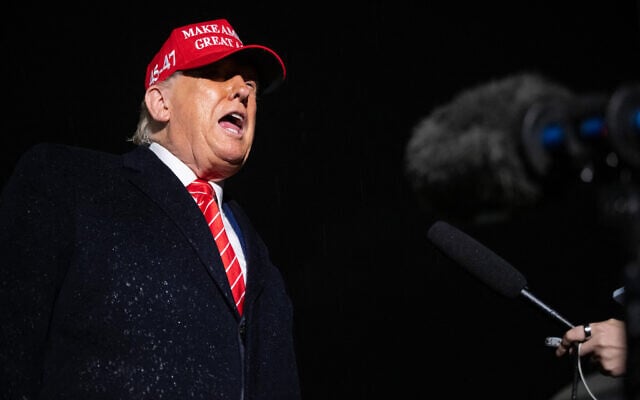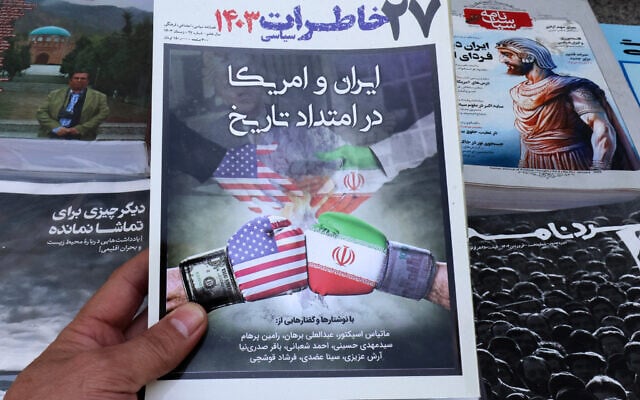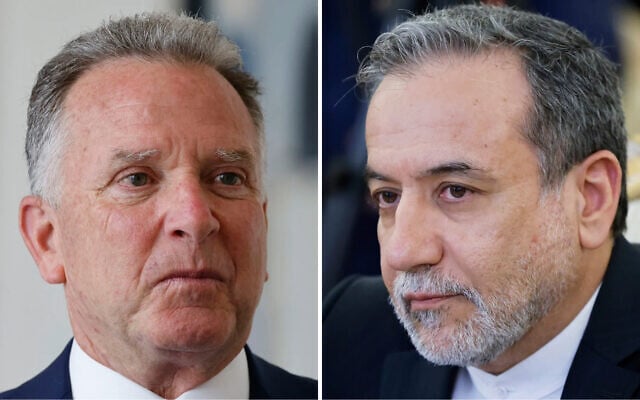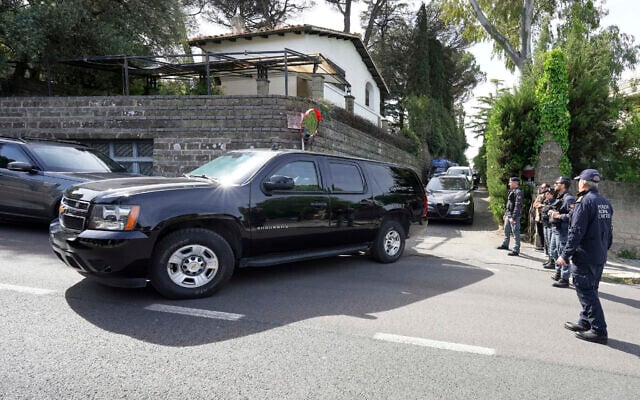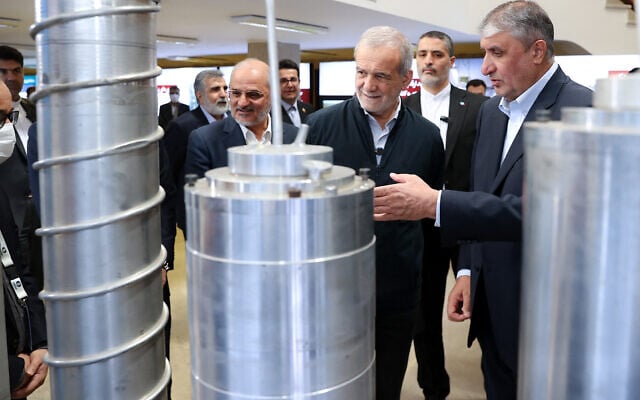


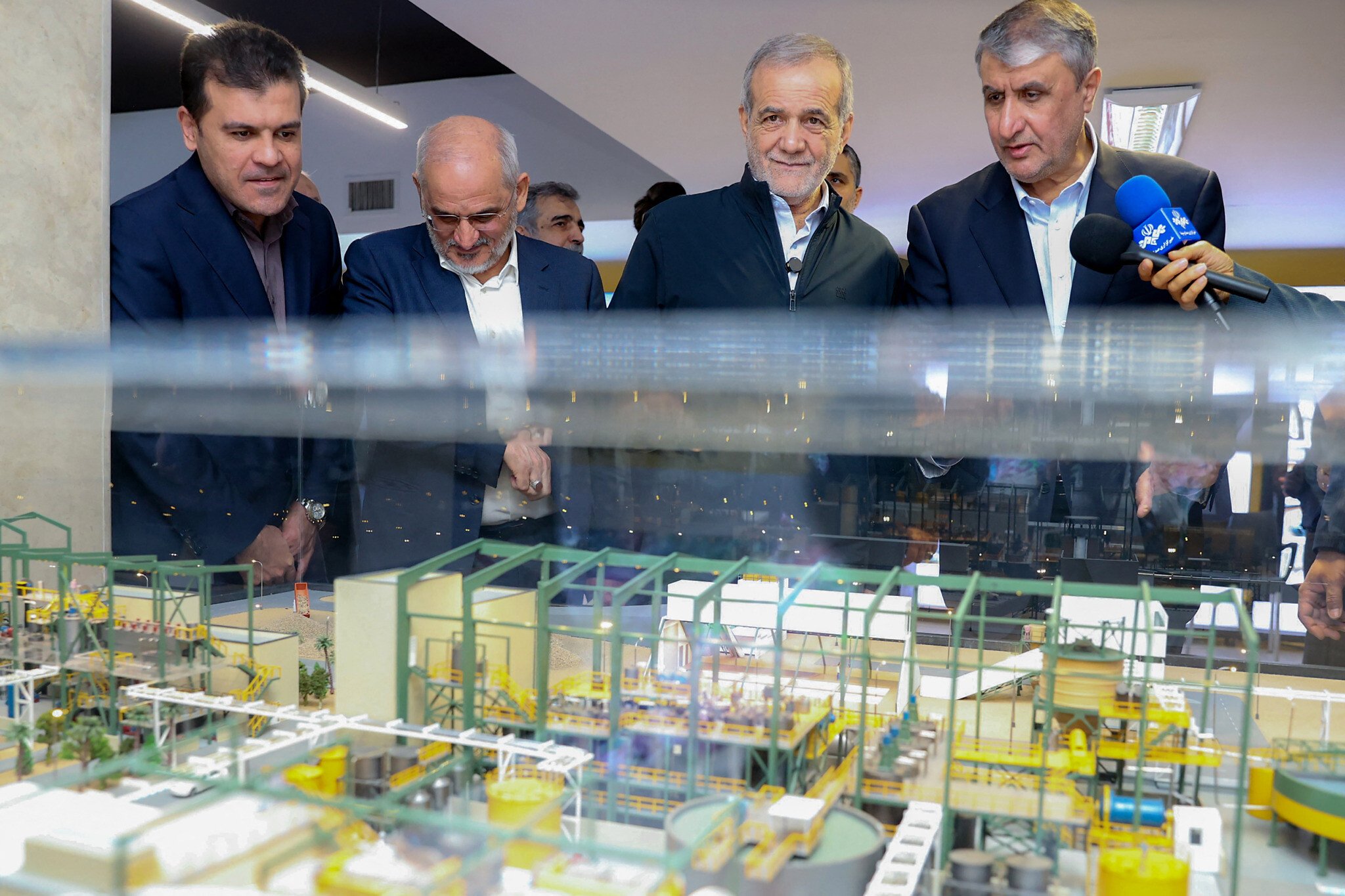
A US proposal for a nuclear deal presented to Iran on Saturday allows some limited uranium enrichment within the country, according to a Monday report, though US President Donald Trump said online that any agreement with Iran would ban all enrichment.
According to Axios, a proposal presented to Iran Saturday by Omani Foreign Minister Sayyid Badr Albusaidi would allow Iran to retain low levels of enrichment for civilian uses like nuclear medicine and commercial power if it agrees to shut down its heavily protected underground sites for a period of time.
The Axios report cited two sources with direct knowledge of the proposal, which appeared to mirror a 2015 deal ripped up by Trump during his first term in office. It was confirmed by two US officials who spoke to the Associated Press on condition of anonymity to discuss private diplomatic negotiations.
Lead US negotiator Steve Witkoff say he agrees with Israel’s insistence that any deal include a requirement for Iran to cease all uranium enrichment activity, a demand that Tehran has steadfastly rejected.
However, both he and Trump have previously offered mixed public messages about whether Iran would be allowed to retain the capacity to enrich uranium to lower levels for civilian purposes.
The White House did not deny the details of the offer.
“President Trump has made it clear that Iran can never obtain a nuclear bomb,” US Press Secretary Karoline Leavitt said in response. “Special Envoy Witkoff has sent a detailed and acceptable proposal to the Iranian regime, and it’s in their best interest to accept it. Out of respect for the ongoing deal, the Administration will not comment on details of the proposal to the media.”
Hours later, Trump posted to his Truth Social online platform that “Under our potential Agreement — WE WILL NOT ALLOW ANY ENRICHMENT OF URANIUM!” The White House did not elaborate on the post.
The deal as laid out in the Axios report would forbid Iran from building new enrichment facilities and dismantle enrichment infrastructure, as well as stop Iran from new research and development of centrifuges.
It would require Iran to stop enriching the higher levels it currently reaches and to mothball its underground enrichment facilities for a to-be-agreed-upon period.
However, Iran would be able to keep enriching in above-ground facilities to 3 percent, the level needed to fuel a civilian nuclear reactor.
The agreement calls for the eventual creation of a regional consortium to handle uranium enrichment for civilian uses — a plan first studied more than a decade ago in negotiations that led to the 2015 Iran nuclear deal.
Sanctions would be eased after Iran “demonstrates real commitment” to the terms of the deal, as determined by Washington and the International Atomic Energy Agency.
The 2015 Joint Comprehensive Plan of Action between Iran and six world powers, which was negotiated by the Barack Obama administration, allowed Iran to enrich uranium to 3.67% while providing sanctions relief. Trump, who was sharply critical of the agreement, withdrew the US from the pact in 2017.
Tehran has responded by ramping up enrichment to near-weapons grade levels, with experts predicting that Tehran could produce a bomb within weeks if it decides to pursue nuclear arms.
The International Atomic Energy Agency said in a confidential report released Saturday that Iran has further increased its stockpile of uranium enriched to near weapons-grade levels since its last update in February.
Earlier Monday, a senior Iranian diplomat said Tehran would reject the US proposal because it fails to address Tehran’s interests or soften Washington’s stance on uranium enrichment.
According to the Wall Street Journal, Israeli officials believe the US may drop the demand that all enrichment be banned and proceed with a less comprehensive agreement rather than risk the negotiations collapsing.
Several of the main points in the reported proposal appeared to be very similar to conditions outlined in the 2015 nuclear deal.
Early iterations of that agreement negotiated also suggested the possibility of a regional consortium that would put Iranian uranium enrichment above a certain level under the control of Iran and its neighbors. The idea was scrapped, however, because of Gulf Arab nations’ objections and Iranian suspicions of the ultimate aims of the consortium.
People who were involved in the 18-month negotiations for the 2015 deal reacted immediately to reports that the Trump administration might allow Iran to continue with an enrichment program at any level, particularly after senior officials repeatedly said Iran would not be able to retain such programs.
“This proposal poses a moment of truth for critics of previous Iran nuclear negotiations/agreements (and) those who have called for a no-enrichment, full-dismantlement deal,” Dan Shapiro, Obama’s former ambassador to Israel, wrote on X. “Will they hold Trump to the same standard?”
Israel has threatened to take military action to destroy Iran’s nuclear program, but is seen as unlikely to do so while talks are taking place.
Iran, which avowedly seeks Israel’s destruction, has consistently denied seeking to acquire nuclear weapons. However, it has been enriching uranium to levels that have no peaceful application, has obstructed international inspectors from checking its nuclear facilities, and expanded its ballistic missile capabilities, and its officials have increasingly warned that they could pursue the bomb.

